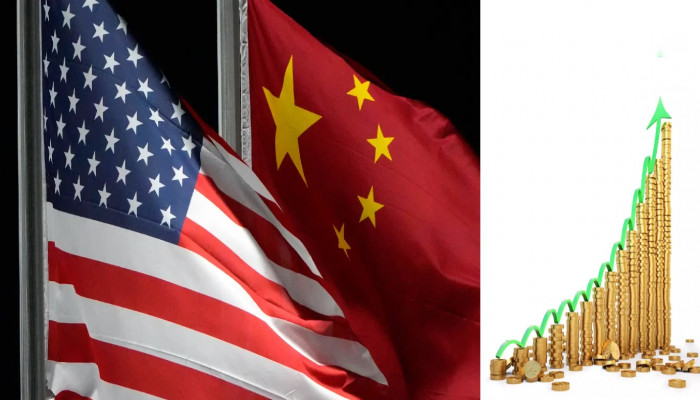House committee chairman introduces Bill to revoke China’s preferential trade status
- In Reports
- 05:03 PM, Nov 16, 2024
- Myind Staff
The chairman of the House Select Committee on the Chinese Communist Party, Representative John Moolenaar (R-MI), introduced the Restoring Trade Fairness Act on Thursday, a significant bill aimed at revoking China's Permanent Normal Trade Relations (PNTR) status with the United States.
The legislation seeks to address concerns over China’s trade practices, which critics argue have negatively impacted American workers, industries, and national security. If passed, the bill would undo a two-decade-old policy that granted China PNTR status as part of its accession to the World Trade Organization (WTO).
"Having permanent normal trade relations with China has failed our country, eroded our manufacturing base, and sent jobs to our foremost adversary," Moolenaar said. "Today, I am introducing the Restoring Trade Fairness Act to stop the Chinese Communist Party from taking advantage of America and to level the playing field for American workers and our allies."
The Restoring Trade Fairness Act proposes revoking China’s PNTR status and imposing steep tariffs on Chinese imports, including a 35% tariff on non-strategic goods and 100% on strategic items such as semiconductors and rare earth elements. These tariffs would be phased in over five years, signalling a clear intent to recalibrate U.S.-China trade relations.
The bill would also eliminate de minimis treatment, meaning all Chinese imports, regardless of their value, would face stringent customs inspections and higher tariffs. Revenue generated from these tariffs would be allocated to bolster U.S. farmers, manufacturers, and military preparedness, particularly in the Pacific region.
Key provisions include designating critical goods, such as semiconductors, as "strategic," subjecting them to the highest tariff rates. This move aims to reduce U.S. reliance on China, protect American industries, and enhance national security.
Moolenaar’s effort reflects growing bipartisan frustration with China’s economic policies, which lawmakers say have led to outsourcing of American jobs and heightened U.S. dependence on China for essential goods. Critics of the 2000 PNTR decision argue that it failed to liberalise China’s economy or curb unfair practices.
Senator Tom Cotton (R-AR), who introduced companion legislation in the Senate, emphasised the stakes. "China's Permanent Normal Trade Relations status has enriched the Chinese Communist Party while costing the United States millions of jobs," Cotton said. "This bill will protect American workers, enhance our national security, and end the Chinese Communists' leverage over our economy."
Other Senate Republicans, including Marco Rubio (R-FL) and Josh Hawley (R-MO), have introduced similar measures this year, signalling broad consensus on reevaluating U.S.-China economic relations.
Support for the bill extends beyond Congress. The Coalition for a Prosperous America, an organisation advocating for fair trade policies, has endorsed the legislation. Its members argue that moving away from China is essential to restoring economic balance. Oren Cass, founder and chief economist of American Compass, echoed this sentiment, stating, "We need to focus on rebuilding American industrial capacity and stop the CCP from exploiting American markets."
The bill represents a significant shift in U.S. trade policy, prioritising reduced reliance on China and safeguarding critical industries. As tensions between the two economic powers escalate, Moolenaar’s proposal signals the United States' intent to confront the long-term consequences of China’s economic rise.
If enacted, the Restoring Trade Fairness Act would mark a turning point in U.S.-China relations, reshaping global trade dynamics and asserting American economic independence.







Comments